September 1, 2023 •
Maine Ethics Commission Updates Guides with 2023 Changes

Maine Capitol Building
The Commission on Governmental Ethics and Elections Practices published legislative summaries and updated guides to reflect legislation passed in 2023. Effective October 25, the window to register as a lobbyist is decreased from 15 to 10 calendar days following triggering […]
The Commission on Governmental Ethics and Elections Practices published legislative summaries and updated guides to reflect legislation passed in 2023.
Effective October 25, the window to register as a lobbyist is decreased from 15 to 10 calendar days following triggering activities.
Penalties for lobbyist reporting violations will increase by $50 for each successive violation during a lobbying year.
Effective June 22, the ban on direct corporate contributions was reversed and now limited to $1,950 in any election for a gubernatorial candidate; $475 for a legislative candidate; $575 for a candidate for municipal office; and $975 in any election for any other candidate.
May 10, 2023 •
Georgia Commission Gets Old Name Back
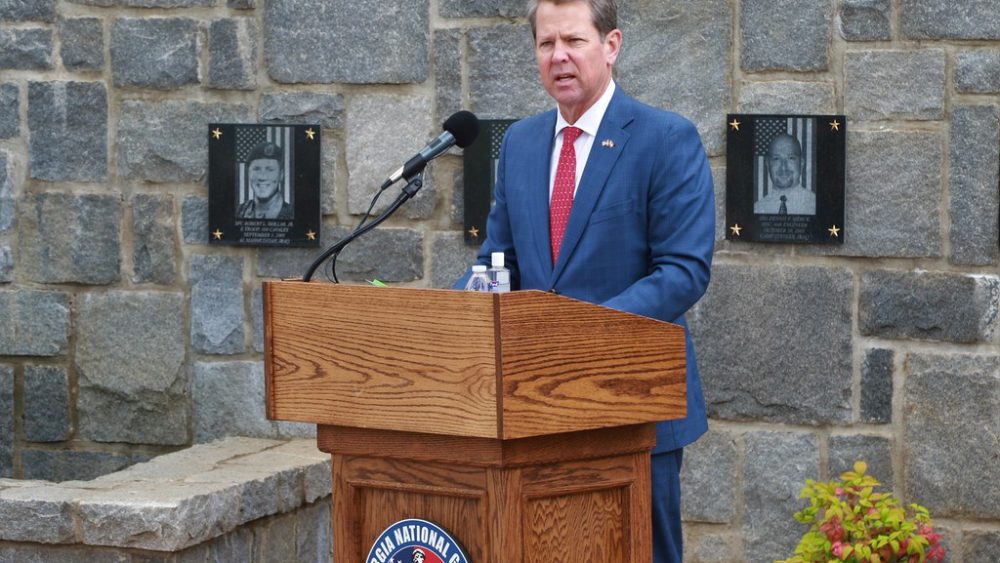
Georgia Governor Brian Kemp
Gov. Brian Kemp signed a bill changing the name of the Government Transparency and Campaign Finance Commission back to the State Ethics Commission. The much longer commission name was the product of a major ethics overhaul in 2010. In addition […]
Gov. Brian Kemp signed a bill changing the name of the Government Transparency and Campaign Finance Commission back to the State Ethics Commission.
The much longer commission name was the product of a major ethics overhaul in 2010.
In addition to the name change, House Bill 572 also clarifies rules for late contribution reporting.
A contribution designated for a general election given close to a primary election date does not need reported within two days.
The new law will take effect on July 1.

North Dakota Capitol Building
Attorney General Wayne Stenehjem issued an opinion confirming the Ethics Commission is constitutionally authorized to create a rule expanding the definitions for “lobby” and “lobbyist” for purposes of the new gift rules. The opinion was issued in response to a […]
Attorney General Wayne Stenehjem issued an opinion confirming the Ethics Commission is constitutionally authorized to create a rule expanding the definitions for “lobby” and “lobbyist” for purposes of the new gift rules.
The opinion was issued in response to a request for clarification from Ethics Commission Chairman Ron Goodman.
The definitions used by the commission in the new gift rules in the Administrative Code adopted in October are broader than those passed by the Legislature in House Bill 1521.
The Ethics Commission expanded the definition of lobby and lobbyist to include attempts to influence any public official, administrative rule, or regulation rather than just the Legislature and legislation.
The new rules are not intended to expand the definition of who should be required to be registered as a lobbyist.
November 16, 2020 •
Cincinnati Councilmembers Introduce Proposed Ethics Reforms

Cincinnati Skyline - by Mr. RNGAndreson
Two Cincinnati Councilmembers, Greg Landsman and Betsy Sundermann held separate news conferences in front of City Hall today. The two councilmembers announced a series of proposed reforms to restore the public’s trust in government after two members were charged with […]
Two Cincinnati Councilmembers, Greg Landsman and Betsy Sundermann held separate news conferences in front of City Hall today.
The two councilmembers announced a series of proposed reforms to restore the public’s trust in government after two members were charged with corruption just this year.
The proposed reforms include establishing an ethics commission, designating a chief ethics and good government officer, campaign finance reform, ongoing training, and a potential charter amendment that would allow for the recall of people in office.
At this time, there is no provision in the Cincinnati Charter addressing what happens in the event of public corruption allegations.
Tamaya Dennard resigned from council in February. Councilman Jeff Pastor, who was arrested Tuesday has not resigned despite calls for him to do so.

North Dakota State Capitol - By Bobak Ha'Eri
The North Dakota Ethics Commission announced it will hold a public hearing to address proposed rules. The hearing will take place at 9:00 a.m. on September 15. The proposed rules implement Article XIV of the North Dakota Constitution relating to […]
The North Dakota Ethics Commission announced it will hold a public hearing to address proposed rules.
The hearing will take place at 9:00 a.m. on September 15.
The proposed rules implement Article XIV of the North Dakota Constitution relating to allowable gifts between lobbyists and public officials and may be reviewed at https://www.ethicscommission.nd.gov/.
Written or oral comments may be submitted to 101 Slate Drive, Suite #4, Bismarck, North Dakota, 58503, or via email to ethicscommmission@nd.gov.
All comments received by September 29 will be considered.
January 15, 2020 •
New Mexico Ethics Commission Begins Work for 2020
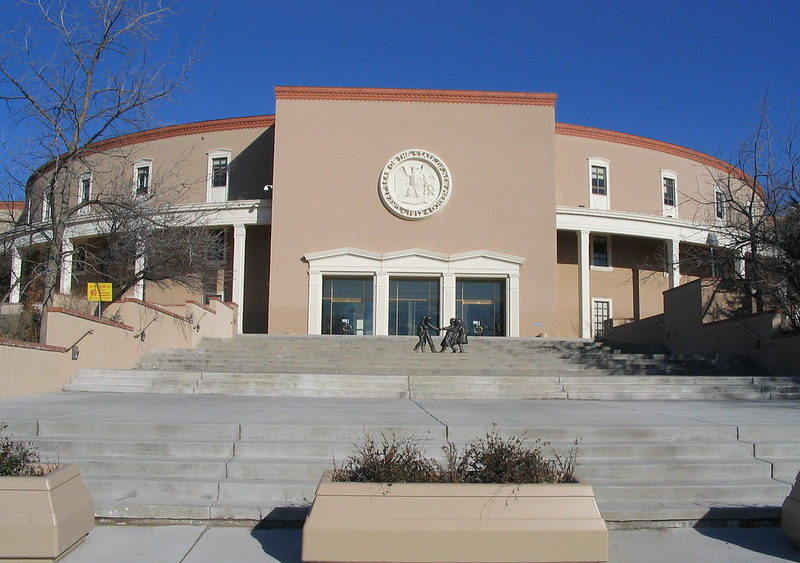
New Mexico Capitol Building - Ken Lund
New Mexico’s new Ethics Commission opened its doors January 2 to complaints regarding campaign finance, government contracting, gifts from lobbyists, and more. Voters approved the creation of the Ethics Commission in a November 2018 referendum. The new Ethics Commission has […]
New Mexico’s new Ethics Commission opened its doors January 2 to complaints regarding campaign finance, government contracting, gifts from lobbyists, and more.
Voters approved the creation of the Ethics Commission in a November 2018 referendum.
The new Ethics Commission has the power to enforce the civil provisions of several governmental conduct and disclosure laws by imposing civil penalties and recommending disciplinary action, including impeachment.
Jeremy D. Farris is the first state Ethics Commission executive director.
Farris previously served as general counsel to New Mexico’s Department of Finance and Administration.
On January 2, Rochelle Ford became the acting director of the District of Columbia’s Board of Ethics and Government Accountability. Ford was the Board’s Senior Attorney Advisor and had served as Interim General Counsel. Ford replaces Brent Wolfingbarger, who resigned […]
On January 2, Rochelle Ford became the acting director of the District of Columbia’s Board of Ethics and Government Accountability.
Ford was the Board’s Senior Attorney Advisor and had served as Interim General Counsel.
Ford replaces Brent Wolfingbarger, who resigned following a council oversight hearing where Wolfingbarger’s office’s performance came under criticism, according to the Washington City Paper.
His resignation was effective on December 31, 2019.
June 6, 2019 •
North Carolina Ethics Commission Names Interim Director
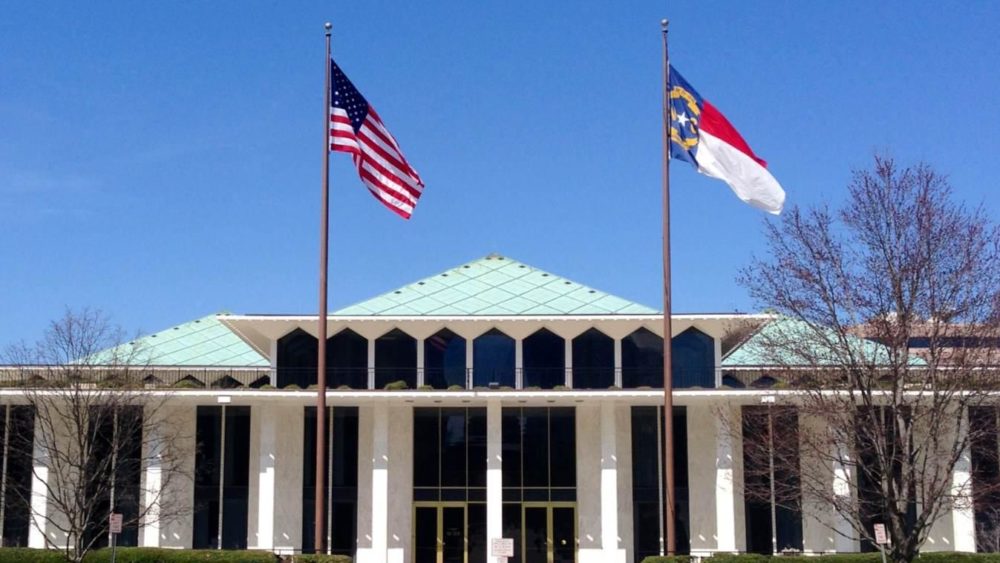
North Carolina State Legislative Building
The reconstituted State Ethics Commission has named Kathleen Edwards the interim director. Edwards, who has been a commission attorney, will take the lead role until a permanent director is chosen. The commission was merged with the State Board of Elections […]
The reconstituted State Ethics Commission has named Kathleen Edwards the interim director.
Edwards, who has been a commission attorney, will take the lead role until a permanent director is chosen.
The commission was merged with the State Board of Elections then was remade as a stand-alone entity again following the passage of House Bill 1029.
Edwards will have to hire a new staff and try to recover several positions the commission lost when it was merged.
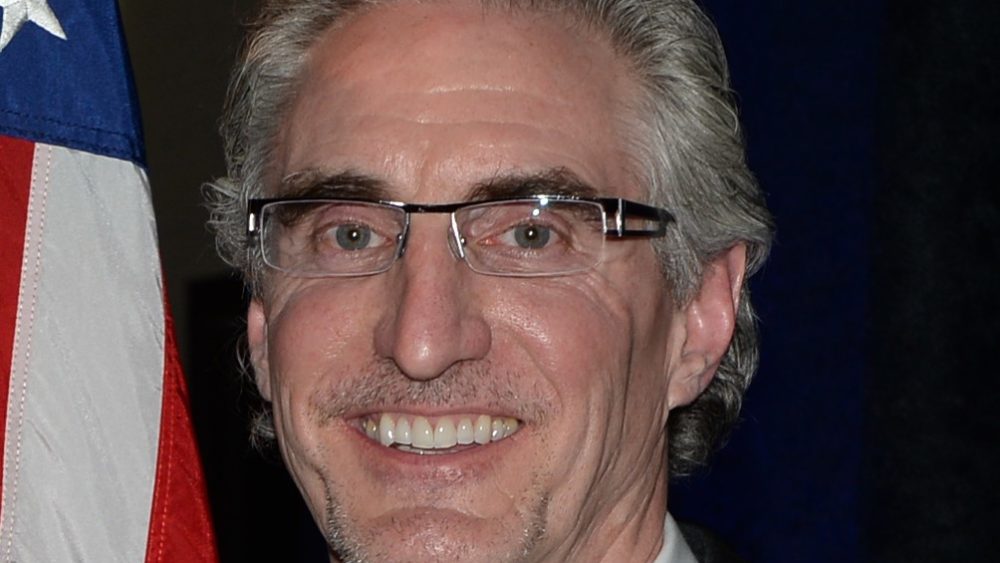
North Dakota Gov. Doug Burgum by Senior Master Sgt. David H Lipp
Top North Dakota officials are working towards forming a new panel to oversee ethical standards in state government as a result of last year’s passage of Measure 1. Gov. Doug Burgum’s office is accepting applications for the new ethics commission […]
Top North Dakota officials are working towards forming a new panel to oversee ethical standards in state government as a result of last year’s passage of Measure 1.
Gov. Doug Burgum’s office is accepting applications for the new ethics commission through May 24 and hopes to have members selected by July 1.
The five commissioners will be chosen by consensus agreement of the governor and the Senate’s majority and minority leaders.
The state constitution bars certain people from serving on the commission including lobbyists, political party officials, and those who hold statewide elected or appointed office.
June 28, 2018 •
Maine to Introduce Separate Campaign Finance Reporting System
The Maine Ethics Commission will be rolling out a new campaign finance reporting system for candidates, party committees, political action committees, and ballot question committees. The lobbyist reporting system will remain the same. However, for those individuals who use the […]
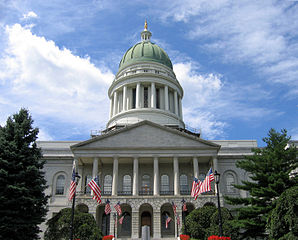 The Maine Ethics Commission will be rolling out a new campaign finance reporting system for candidates, party committees, political action committees, and ballot question committees.
The Maine Ethics Commission will be rolling out a new campaign finance reporting system for candidates, party committees, political action committees, and ballot question committees.
The lobbyist reporting system will remain the same. However, for those individuals who use the same login credentials to access both the campaign finance system and lobbyist system, the login will remain the same, but the reporting systems will be separate.
As a result of the upgrade, both the lobbyist reporting system and campaign finance system will be inaccessible starting at 6:00 p.m. June 28 until the morning of July 2.
February 8, 2017 •
Phoenix City Council Votes to Create Ethics Commission
On Tuesday, Phoenix City Council voted unanimously to move forward with creating a bipartisan ethics commission. The commission would screen allegations and recommend penalties for city officials who violate the city’s gift policies and other related rules. Under a plan laid out by […]
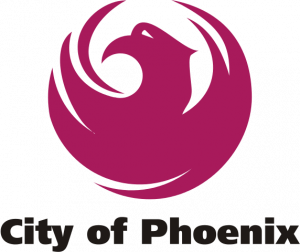 On Tuesday, Phoenix City Council voted unanimously to move forward with creating a bipartisan ethics commission. The commission would screen allegations and recommend penalties for city officials who violate the city’s gift policies and other related rules.
On Tuesday, Phoenix City Council voted unanimously to move forward with creating a bipartisan ethics commission. The commission would screen allegations and recommend penalties for city officials who violate the city’s gift policies and other related rules.
Under a plan laid out by a City Council member, potential commissioners are screened by a city board and ultimately appointed by City Council. Phoenix’s current ethics rules are unenforceable as the city lacks a mechanism for investigating ethics complaints and recommending punishment.
This is not the first time Phoenix has attempted to create an ethics commission; previous attempts have been unsuccessful in part due to concerns about the commission becoming a political attack tool.
City Council will still need to approve a final ordinance in order to establish an ethics commission. A final vote on the matter is expected this spring.
December 15, 2016 •
Surprise Special Session Called in North Carolina
Minutes after legislators finished work on a hurricane relief package in a two-day special session set by Gov. Pat McCrory, Republicans called a second special session Wednesday in an attempt to pass legislation to limit newly elected Democrats. Most of […]
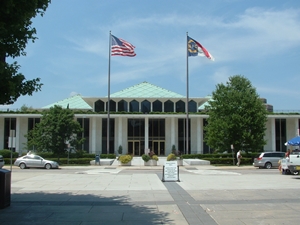 Minutes after legislators finished work on a hurricane relief package in a two-day special session set by Gov. Pat McCrory, Republicans called a second special session Wednesday in an attempt to pass legislation to limit newly elected Democrats.
Minutes after legislators finished work on a hurricane relief package in a two-day special session set by Gov. Pat McCrory, Republicans called a second special session Wednesday in an attempt to pass legislation to limit newly elected Democrats.
Most of the 21 bills introduced seek to limit the power of the executive branch. Senate Bill 4 would merge the State Board of Elections with the State Ethics Commission and create a new eight-member board split evenly between Republicans and Democrats. Current law gives a majority of the state elections board’s five members to the governor’s party.
December 14, 2016 •
Wisconsin Ethics Commissioner Resigns Amid Agency Dysfunction
Wisconsin state ethics commissioner Robert Kinney announced his resignation Monday. Kinney cited his disappointment in the agency as his reason for stepping down. He claims the relatively new Ethics Commission operates too secretly and does not adequately enforce ethics, campaign […]
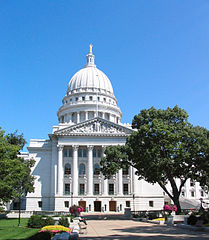 Wisconsin state ethics commissioner Robert Kinney announced his resignation Monday. Kinney cited his disappointment in the agency as his reason for stepping down. He claims the relatively new Ethics Commission operates too secretly and does not adequately enforce ethics, campaign finance and lobbying rules.
Wisconsin state ethics commissioner Robert Kinney announced his resignation Monday. Kinney cited his disappointment in the agency as his reason for stepping down. He claims the relatively new Ethics Commission operates too secretly and does not adequately enforce ethics, campaign finance and lobbying rules.
Moreover, he contends several members of the commission demonstrate an obvious lack of commitment to the underlying purpose of the agency. In June, Gov. Scott Walker appointed Kinney from a pool of candidates provided by the Democratic Party.
December 2, 2016 •
Oklahoma Ethics Commission Proposes Changes to Lobbyist Filing Dates
The Oklahoma Ethics Commission recently approved a proposed rule amendment regarding due dates for lobbyist registration and reporting. The intent is to make registration and reporting more convenient by providing more time between the end of the registration or reporting […]
 The Oklahoma Ethics Commission recently approved a proposed rule amendment regarding due dates for lobbyist registration and reporting.
The Oklahoma Ethics Commission recently approved a proposed rule amendment regarding due dates for lobbyist registration and reporting.
The intent is to make registration and reporting more convenient by providing more time between the end of the registration or reporting period and the due date for filing. Registration renewals would be required by January 15, and lobbying reports would be due on or before the 15th in any month a report is required.
The amendment is still pending. If lawmakers do not disapprove the rule, the changes will go into effect when the Legislature adjourns in May.
State and Federal Communications, Inc. provides research and consulting services for government relations professionals on lobbying laws, procurement lobbying laws, political contribution laws in the United States and Canada. Learn more by visiting stateandfed.com.

